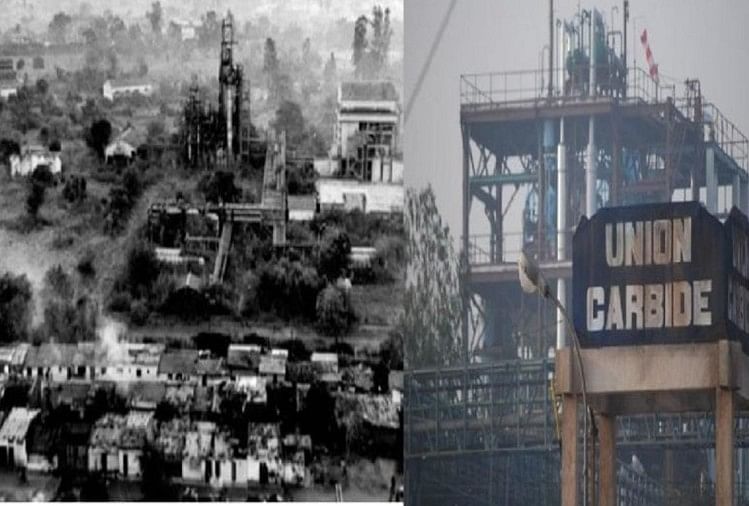
by Yashasvi Jain and Rishika Kaushik 10 June 2020
The world can trace one of the biggest industrial disasters to the 1984 Bhopal gas tragedy in India which left half a million people exposed to a lethal gas leak from a pesticide plant. The reverberations of the incident caused the biggest human rights violation in the world which not only degraded the environment but also impaired the future of people born to survivors. After 36 years, on 7th May 2020, the history of this haunting sight drew parallel with the Styrene gas leak incident at Visakhapatnam, India The congruence between the two cases can be drawn in terms of involvement of transnational corporations (“TNCs”)[Union Carbide (USA) in Bhopal Tragedy and LG Polymers (South Korea) in Visakhapatnam Tragedy] and the lackadaisical approach of the government.
Experts claim that the Visakhapatnam gas leak incident could have been prevented but for the callousness of the government, LG Polymers was operating without an environmental clearance and without complying with the provisions of various legislations.
India has a long standing history of economic exploitation in the hands of the developed countries, where the government has been subservient to the interests of TNCs. The government heedless of the strict implementation of the existing laws, lures the TNCs into unregulated business activities giving them opportunities to play around with human rights. These corporations seem to effortlessly find their way into developing nations on the pretext of economic prosperity. In the pursuit of profit maximisation and cheap labour, these TNCs transfer redundant technology, swaying away the developing countries who get distracted from making an assessment of the risks on environment and human life. With no international code of conduct and an ineffective global framework, there is no alternative but to accept it as a fait accompli.
The Visakhapatnam tragedy is an outcome of government’s defiance of laws combined with its sheer negligence to assess risks despite knowledge of possible adverse consequences. We have let economic interests override our private interests, with zilch value to human life. After so many years, neither have we ameliorated the sufferings of victims nor prevented such disasters from taking place.
Whilst the National Human Rights Commission (NHRC), India has issued notice to the government regarding the gruesome violation of human rights of those ailing and dead, it is tacit that NHRC devoid of effective powers is a toothless tiger.
The preamble of the Universal Declaration of Human Rights articulates that disregard and contempt for human rights results in barbarous acts and outrages the conscience of mankind. These human tragedies and their skimpy redressal are gross violations of the basic human rights bestowed under international conventions. To oblige protection of human rights by transnational corporations and business enterprises the United Nations Human Rights Council (HRC) adopted the United Nations Treaty on Transnational Corporations and Human Rights in 2014. Prior to adopting this treaty, the Council had endorsed a set of Guiding Principles on Business and Human Rights to lay a framework for States and corporations to achieve a balance between business interests and human rights through the schema of “protect, respect and remedy”. The guidelines further elaborate that the companies ought to make human rights due diligence a part of their business practice.
With regard to the international human rights regime, the debate of ineffectiveness in implementation of these rights has been persistent. The international conventions and principles regarding obliging transnational corporations to protect human rights suffers from a major predicament which has in turn compromised its effectiveness. Firstly, the principles only have a guiding force and not a binding force. Thus, they are blatantly overlooked and surpassed by the transnational corporations. These principles also remain silent on the liability of states for human rights violation caused by companies registered in their country.
Furthermore, while states have a ‘duty’, the corporations and businesses have a ‘responsibility’ to protect human rights. The gap between duty and responsibility can be summarised as while the former carries an obligation, the latter is merely a desirable action. Its compliance is not mandatory but rests at the whims of the company. Contrastingly, only a few states acceded to the treaty while most countries which are a hub for MNCs did not. Thus, the purpose of the treaty stood defeated.
The revered right of Article 21 in Indian Constitution recognizing hygienic environment as an integral facet of right to healthy life stands grossly abrogated when the victims of gas leak are left with a permanent scar on their physical and mental health. It has been more than 36 years of the Bhopal catastrophe and the state till date, has failed to provide an adequate standard of living. Bhopal has become a specimen of re-victimizing the victims; sometimes in a gas chamber, other times in a court chamber. The murky experience of meagre compensation and inadequate conviction in Bhopal Tragedy has created dubiousness as to the satisfaction of the quest for justice for the victims of Visakhapatnam. It showcased the dexterity of transnational companies in flushing down their social responsibility and making a mockery of celebrated human rights.
While violation of human rights can never be offset by monetary compensation, the Vishakhapatnam adjudication will test how the courts address the brooding injustice suffered by victims by making protection of human rights integral to the assessment of liability of the corporation.
In the times to come, it will be remarkable to see if the courts attempt to make human rights the cornerstone of adjudicating the liability of corporations, government and other stakeholders. A situation where license to run an industry is mere perfunctory, the transnational corporations cannot absolve themselves of their misdeeds. It still seems like a long journey before the global cry to respect and protect human rights would reach the deaf ears of the transnational corporations.
